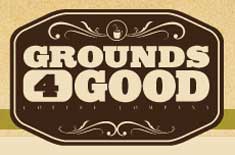» News
Economic stimulus
This is an extension of the “Going Green with your green” post
The federal government is getting ready to dump billions of dollars into the economy to help stimulate the economy and help American families. The idea is that each of us tax payers, and those working families who don’t make enough to pay taxes, each will get a tax rebate (not sure how you can call it a rebate if you don’t pay anything in, but that argument is for another time), the amount based upon the number of people in the household. The checks are suppose to start mailing in May, then we will each turn around, spend that money on things we need and get some cash flowing in the economy.
A lot of folks will spend as if it were lottery winnings or an inheritance from a long lost uncle, purchasing things one would not otherwise buy for oneself when inflation is as high as 18% (look at your receipts… groceries alone have gone up 18-22% in the last 18 months). Some have already spent the money buying things they want and will use the check to pay off (or down) credit card debt. While this is spending the money and getting it into the economy, it is very short-sighted.
First, we are turning around and giving our cash into the big corporations that are already reporting record profits and don’t need help with an economic stimulus. Exxon Mobil (see here (and here)), Walmart (see here), etc (here, here, here). The impact on the economy will be short-lived if the rebates are poured right into the overflowing hands of Big Oil and Big Box Retailers. They are not hurting, despite the increases in prices (inflation) and the freeze on hiring and pay raises, and in some cases lay-offs (automaker with profit let go 8100 people), they do have profits, and even record profits.
Second- environmental impact. The environmental impact of the consumerist, materialistic lifestyle will cost even more down the road. Any economic upturn will be followed by an equal or deeper downturn. Dependence on oil is rooted in the dependence on modern luxury goods such as tv, radio, prepackaged food, eating out. Look at the “carbon footprint” left behind — miles goods travel, the amount of packaging required, and the landfill holding all the trashed stuff. [carbon footprint calculator]
Third – social impact. World magazine [Vol. 23, No.4, p 10] puts it this way:
“Not all taxpayers are created equal in the eyes of Congress. The economic stimulus effort signed into law Feb. 13 will mean different things to different Americans… but [the money] is only for taxpayers who made up to $75,000 last year and married taxpaying couples who made up to $150,000. Individuals who made between $75,000 and $87,000, and married couples who made between $150,000 and $174,000, will receive only partial rebates.” The implication is that the very hardworking middle class is being, once again, left out. When exactly did that income level become middle class? I’ve always thought I was middle class, and once again (the Federal School Lunch program gave me my first blow) I’m knocked over with a fiscal feather. I thought people who made that much money were well off and already spending a fair amount of disposable income. The average income of a single person in Austin is $42,689. The per capita income in Austin is about $24,000. Then I found this graph.
The number of Austin families making less than $50,000 a year decreased, and the numbers making over $50,000 increased in the last decade of the 20th century. And the percentage of single taxpayers or families earning between $75,000 and $100,000 was about 12.5%. The number of families earning between $150,000 and $200,000 is less than 4%. Now it’s been a long time since I sat in an economics class, but including the families making $200,000+, that is fewer than 9% of Austin families. That’s not middle class. That’s the wealthiest 10% of our society. The folks that may worry me are those who make so little money that they don’t always file taxes at all. We need to make sure folks know to file their taxes– and low income folks can file for free with Turbo Tax online. It’s accessible from any public library for free.
So what are we to do?
1. See Amy’s post on Going green with your green – we could make a huge difference if we all used our economic and tax rebates in a social and ecologically sound way, such as green initiatives. Use your rebate to purchase a Hybrid vehicle, solar panels, or a more efficient furnace, water heater or other appliance that you depend on daily. Make your money an investment that will give you a return. Double the money with the government’s incentives and rebates for “going green.” There’s a place to check off on your tax forms next year that could give you $3000 back on the purchase of a Hybrid. Your city utility may give rebates on the purchase of front loading washers, solar panels, or new toilets. Check it out.
2. Spend your check locally. Think Globally, Act Locally. Keep that money in your own community. Spend your check directly with small businesses or individuals. This will in-turn allow them to spend the money again, truly getting the cash flowing and stimulating the economy instead of increasing the coffers and profits of the big business while they lay off more workers to keep their profits growing by the right percentage year after year. Go by the Whip-In, Austin Baby and share this green love around. Let’s don’t give the money straight to Walmart. Make them work for it.
jeff & amy jones









» Leave a Reply